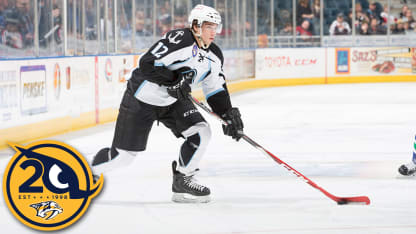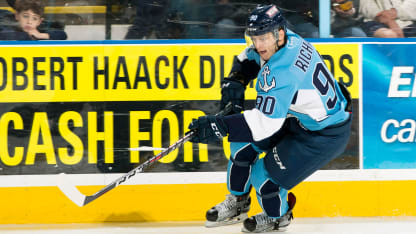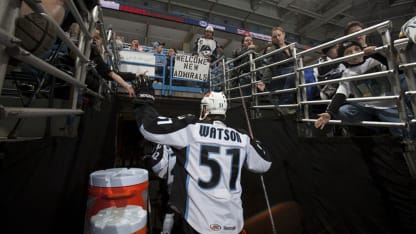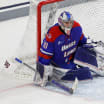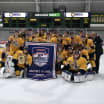Only a few prospects in the Predators' organization advanced straight to the NHL without at first getting some seasoning in Milwaukee.
One was center David Legwand, the first draft pick in team history, who brought much-needed speed and offense to an expansion-era Predators team in need of both. Another was forward Scott Hartnell, a physically mature 18-year-old who brought size and strength to a Preds team that was short on both.
Jordin Tootoo went straight from juniors to the NHL in 2003, but would eventually spend a good chunk of time - a combined 100 games in 2004-05 and 2005-06 - in Milwaukee.
One other prospect who made the leap was defenseman Seth Jones, the fourth overall pick in 2013, a player both talented and mature enough not to need Milwaukee as a stepping stone.
But the list of Predators who honed their skills in Milwaukee before ascending to the NHL - which includes the likes of Kimmo Timonen, Dan Hamhuis, Ryan Suter, Shea Weber, Roman Josi, Mattias Ekholm, Pekka Rinne, Ryan Ellis, Alexander Radulov and Filip Forsberg among many others - is far, far longer.
"I can tell you there is a value on what a player is able to learn and accomplish down there," Predators Head Coach Peter Laviolette said. "Not everyone that comes out of the Draft is ready to play in the NHL. So the AHL is a league where they can learn the right roads they need to take in their pro career. They might get benched, they might get extra power-play time, they might get pulled from a lineup. It's a big learning process."
For European prospects like Forsberg, Fiala and Josi, time spent in Milwaukee served at least two significant purposes: It helped them adjust to North America's longer hockey seasons and narrower rinks.
"It's a different game here," Fiala said. "There are so many more games than in Europe, so you've really got to learn how to take care of your body. That's the most important [lesson]. The rink size also because you have to play a different game."
